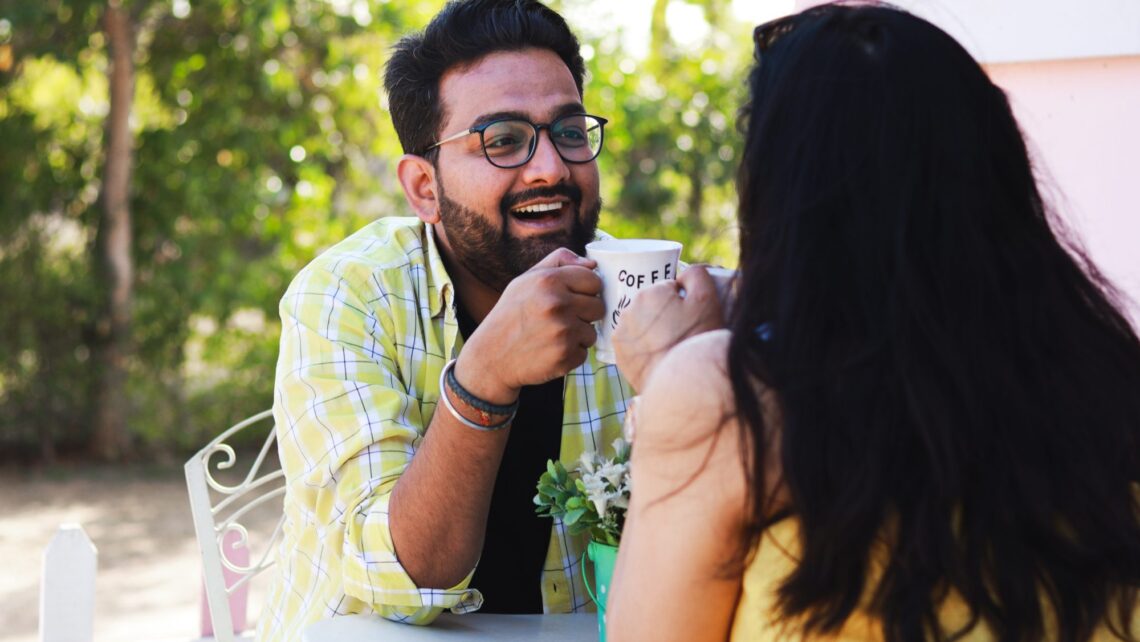Tips for Dry Dating
So, you’ve completed addiction treatment and followed the important advice about waiting to date in early sobriety. Good for you! Now, you’re ready to meet new people, make friends, and maybe even explore a promising relationship. Is “dry dating” different from how you did it before? In some ways, maybe so. But here are some pointers that might help.
Understanding Dry Dating
Dry dating, also referred to as “dating while sober,” refers to the practice of engaging in social activities or dates without the consumption of alcohol or any mind-altering substances. It’s a growing movement where individuals opt for sober dating experiences, focusing on genuine connections and shared interests without the influence of substances that might alter their behavior or perceptions. Dry dating can take many forms, from coffee dates and outdoor adventures to attending sober events or support group gatherings.
It’s not just people in recovery who align with this approach to dating. The dry concept is part of broader trends involving wellness and mindfulness, which emphasize personal growth and fulfilling relationships that are based on authenticity and shared experiences. It also makes people feel safer in social situations. Here are some other considerations:
- The U.K. dating app Bumble shared results from a 2022 survey that indicated “34 percent of folks using the app say they’re more likely to go on a ‘dry date’ now than pre-COVID.” Additionally, nearly 70 percent of respondents believe “sober dating could help them form more genuine emotional connections.”
- Also in 2022, another dating app, Hinge, stated “75 percent of global Hinge singles say going to get drinks is no longer their preferred first date activity.” What else is interesting? Two out of three respondents said “it would be a dealbreaker if a date drinks too much on a first date.”
- The BBC reported in 2022 that movements such as Dry January and Sober October, as well as individuals who are “sober curious,” make it easier than ever to dry date without judgment.
Ah Jeez…Is Dating Harder Now?
Well, you have to ask yourself: was dating ever easy? Each phase in our lives influences this answer, and individual responses are unique. That said, there are various reasons why some people might not enjoy or prefer to avoid dating—here are three of the most common:
- Previous negative experiences in dating, such as heartbreak, rejection, or unhealthy relationships, often results in apprehension and reluctance to engage in dating again.
- For some people, dating has a lot of societal and personal expectations, including finding a compatible partner, meeting certain standards, and dealing with potential judgment from others. The pressure to impress and conform to these expectations can be overwhelming and stressful, causing some people to avoid dating altogether.
- Some individuals prioritize personal goals, careers, hobbies, or friendships over dating. They might enjoy their independence and find contentment in their current life stage, leading them to opt out of dating to avoid any potential disruptions or distractions.
It’s your choice to date or not. While some individuals might enjoy dating and find it fulfilling, others may decide on alternative paths to happiness and connection that align better with their personal preferences and circumstances.
Tips for Dry Dating
The Thriving Center of Psychology completed a comprehensive survey regarding the “rules” of modern dating. First tip: there really are no “rules,” but certain guidelines help establish better rapport and connection.
Find Avenues of Discussion
There is already a little awkwardness on a first date, but you still have to get to know one other. Aside from sharing interests, respondents indicated that it’s not taboo to have conversations on other topics such as mental health, sobriety, political and spiritual views, and even sexual desires. Remember, you’re always in control of your recovery narrative, so you can decide on how you want to discuss your recovery journey. Also keep in mind that open discussion is the goal, not debate. Topics to avoid include finances, trauma, and sexual history.
Be Courteous
Now more than ever, people are genuinely impressed by authentic levels of politeness. Behaviors such as being rude to waitstaff, talking over the other person, not asking your date questions about themselves and listening to the answers, frequent references to an ex, and backhanded compliments aren’t appreciated.
Take the Pressure Off
It’s totally fine to simply arrange a walk or hike, have an afternoon coffee date, meet up for lunch on a Tuesday or Wednesday, and other non-traditional dates. Not only do ideas like these make it easier to stay sober, but they also provide more one-on-one time without the typical nighttime date expectations.
If you’re concerned about whether to talk about your recovery, simplify the process by using sober dating apps. Here are a few:
Other dating apps also offer a profile indicator that specifies a non-drinking status, just as a non-smoker might do.
Create Meaningful Connections at Seabrook
From whole-person care to detailed relapse prevention plans, the board-certified professionals at each of Seabrook’s four New Jersey locations strive to ensure your sobriety success in all aspects of life. We also help you create meaningful connections through our vibrant alumni services. If prior treatment hasn’t provided the results you prefer, give us a call.




